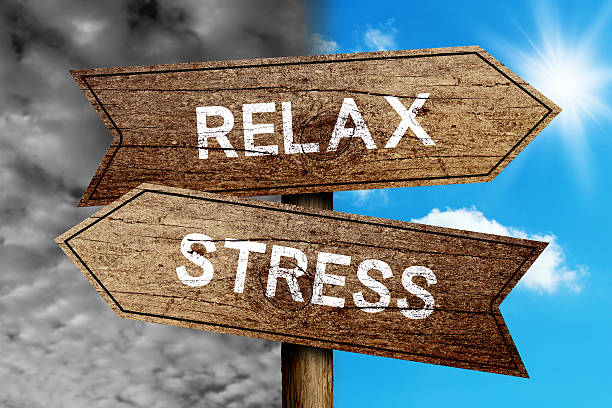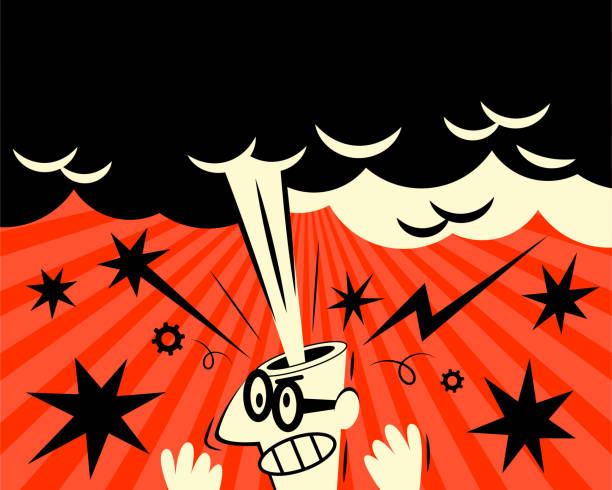
Introduction
Anxiety, a commonplace term in today’s fast-paced world, is far more than just a word. It is a medical condition, a state of excessive unease, characterized by constant worry and fear. Anxiety isn’t selective; it can affect anyone, irrespective of age, gender, or societal status. In fact, according to the World Health Organization, an estimated 264 million people worldwide suffer from an anxiety disorder. It is critical to understand anxiety not only because of its prevalence but also due to its significant impact on an individual’s daily life and overall wellness. This blog post aims to delve into the complexities of anxiety, shedding light on its causes, symptoms, and practical strategies to manage it.
What is Anxiety?

Anxiety is a natural and common response to perceived threats and stressors in our environment, acting as our body’s way of alerting us to potential danger. It manifests as a mixture of feeling anxious such as nervousness, unease, fear, or worry, and can be accompanied by physical symptoms such as a rapid heartbeat, sweating, and rapid breathing. While occasional anxiety is a normal part of life, individuals suffering from an anxiety disorder experience these feelings in an excessive, persistent, and uncontrollable manner, often out of proportion to the situation at hand. This can interfere with daily activities and quality of life.
The Causes of Anxiety

Anxiety is a normal stress response, acting as our body’s natural alarm system. It’s triggered when we perceive a threat, causing adrenaline and other chemicals to surge through our body, preparing us for a ‘fight or flight’ response. However, when anxiety becomes a constant companion, interfering with our daily lives and well-being, it’s considered an anxiety disorder. This can stem from a variety of causes, including genetic factors, brain chemistry, personality, and life events. Chronic stress, traumatic experiences, health issues, or a history of mental health disorders in your family can all play a part. Importantly, it’s often not just one single factor that leads to anxiety disorders, but a combination of several.
What to Do When You Have an Anxiety Attack

An anxiety attack can feel frightening and overwhelming, but there are steps you can take to manage it. Here are some tips to help you through an anxiety attack.
1. Practice Deep Breathing
When we’re anxious, our breathing often becomes shallow and rapid. This can lead to feelings of lightheadedness and increased panic. Practicing deep breathing exercises can help regulate your breath and calm your body’s physiological response to anxiety.
To practice deep breathing, find a comfortable seated position and breathe in slowly through your nose for four seconds. Hold your breath for two seconds, then exhale slowly through your mouth for six seconds. Repeat this process until you feel calmer.
2. Use Grounding Techniques
Grounding techniques are helpful when you’re feeling overwhelmed by anxious thoughts and feelings. These techniques involve focusing on your physical surroundings and using your five senses to connect with the present moment.
For example, you can try counting objects in the room, feeling the texture of a nearby object, or listening to calming music. Grounding techniques can help distract your mind from anxious thoughts and bring you back to the present.
3. Focus on the Present Moment
Anxiety often stems from worrying about the future or dwelling on past events. When you’re having an anxiety attack, try to focus on the present moment instead of getting caught up in negative thoughts.
You can do this by practicing mindfulness techniques such as meditation or simply taking a few deep breaths and focusing on your surroundings. Remind yourself that you are safe in the present moment and that your thoughts and feelings are temporary.
4. Seek Support
It’s essential to have a support system in place when dealing with anxiety. Reach out to a trusted friend or family member or consider seeking professional help if you feel overwhelmed by anxiety attacks. Having someone to talk to can provide comfort and help you work through your anxious thoughts and feelings.
Remember, you are not alone in your struggles, and there is no shame in seeking support.
Brief description of an anxiety attack
An anxiety attack, broadly referred to as anxiety, is a mental health disorder characterized by feelings of worry, unease, or fear that are strong enough to interfere with one’s daily activities. It’s a common psychological condition that often arises due to various factors such as stress, trauma, and certain health conditions.
During an anxiety attack, anxiety symptoms may experience a rapid heart rate, restlessness, and a sense of impending doom. Symptoms may vary in intensity, from mild and transient to a severe panic attack, profoundly impacting your quality of life. Understanding the identified triggers of an anxiety attack is the first step toward anxiety management and improving this condition.
Immediate steps to take when experiencing an anxiety attack
The first step is to acknowledge the situation; and identify that you’re having an anxiety attack and not a heart attack, as the anxiety symptoms can be frighteningly similar. Deep, controlled breathing is an effective next step; inhale slowly for a count of four, hold your breath for a count of four, and then exhale slowly for a count of four. This method, known as the ‘4-7-8’ technique, can help to slow down your heartbeat and control your mind. Attempt to ground yourself by focusing on the physical world around you; describe what you see, touch, or smell. This can help bring you back to reality and away from the thoughts that are causing your anxiety. Practice mindfulness and meditation, even if only for a few minutes, as this can help calm the mind and body. If symptoms persist, reach out to a trusted friend, family member, or mental health professional. Remember, it’s okay to seek help.
Management Strategies for Anxiety
Natural remedies to manage anxiety: exercise, meditation, a balanced diet.
Anxiety is a common psychological condition characterized by persistent and excessive worry about everyday situations. It’s often caused by a combination of factors, including genetic traits, personal life experiences, and overactivity in certain brain regions that control emotions. Though it can be daunting, there are numerous natural remedies available to help manage anxiety. Regular physical exercise, for instance, can reduce anxiety by releasing endorphins, promoting mental well-being.
Meditation, on the other hand, promotes relaxation and tranquility, helping to alleviate the constant worries.
Maintaining a balanced diet, rich in fruits, vegetables, lean proteins, and whole grains, can also contribute significantly to managing anxiety. Understanding what triggers your anxiety and adopting these natural remedies can be effective steps to improve your condition. However, it’s important to consult with a healthcare professional for a comprehensive treatment plan if your anxiety symptoms persist or cause significant distress.
Additional Remedies to Manage Anxiety
Psychological therapies: Cognitive Behavioral Therapy (CBT), exposure therapy
Aside from natural remedies, psychological therapies have shown significant effectiveness in managing and overcoming anxiety. Cognitive Behavioral Therapy (CBT), one of the most commonly adopted therapies, is a structured program that acknowledges the intricate link between thoughts, feelings, and behaviors. It equips individuals with coping strategies to break the cycle of worry and fear, thereby reducing the symptoms of anxiety.
On the other hand, exposure therapy, another common method, involves gradually exposing individuals to the situations or places that trigger their anxiety and panic attacks. This method is aimed at helping individuals deal with their fears, thereby reducing the intensity of their anxiety over time.
Engaging in these therapies under the guidance of a professional can markedly improve your ability to deal with anxiety, boosting your overall mental well-being.
Medications: Selective serotonin reuptake inhibitors (SSRIs), Benzodiazepines
Anxiety, a condition marked by persistent worry and fear, can be debilitating for many individuals. It’s often caused by various factors such as genetic predispositions, environmental stressors, and certain medical conditions. When it comes to managing anxiety, medications play a significant role. Selective Serotonin Reuptake Inhibitors (SSRIs) and Benzodiazepines are two common types of drugs used in the treatment. SSRIs work by increasing the level of serotonin, a neurotransmitter in the brain that regulates mood.
Benzodiazepines, on the other hand, enhance the effect of the neurotransmitter GABA, reducing anxiety and producing a calming effect. While these medications can be highly effective, they are not without side effects and should always be used under the guidance of a healthcare professional.
Steps to Improve Your Anxiety
While managing anxiety attacks is crucial, it’s also essential to take steps to improve your overall anxiety levels. Here are some coping strategies that can help you manage and reduce anxiety in the long term.
Exercise Regularly
Regular exercise is beneficial for both physical and mental health. Engaging in physical activity releases feel-good endorphins reduces stress and can also help improve sleep – all of which can contribute to managing anxiety.
Find an exercise routine that works for you and make it a regular part of your daily routine.
Practice Healthy Habits
In addition to exercise, adopting healthy habits can help improve your overall well-being and reduce anxiety levels. This includes getting enough quality sleep, eating a balanced diet, and limiting alcohol and caffeine intake.
Making small changes in these areas can have a significant impact on your mental health and help you better manage anxiety.
Seek Professional Help
If your anxiety is interfering with your daily life or causing significant distress, seeking professional help is crucial. A mental health professional can provide personalized strategies and treatments to help you manage and reduce your anxiety.
Don’t be afraid to reach out for support – taking care of your mental health is just as important as taking care of your physical health.
Preventive Measures Against Anxiety
Importance of regular physical activity
Regular physical activity is a pivotal aspect of maintaining both physical and mental health and plays a significant role in preventing anxiety. Engaging in regular exercise stimulates the production of endorphins – the body’s natural mood lifters. This not only helps in promoting feelings of well-being and self-confidence but also allows for better sleep, which is often disrupted by anxiety.
Exercise also aids in reducing inflammation and promotes neural growth and development, contributing to a healthy and calm mind. Therefore, incorporating a regular physical activity routine is an essential step toward improving your anxiety.
Value of a healthy, balanced diet
Transitioning towards a healthy, balanced diet is an essential step in overcoming anxiety. A well-rounded diet rich in fruits, vegetables, lean proteins, and whole grains can significantly influence our mental health. It provides vital nutrients that assist in the regulation of our mood and energy levels.
Studies have shown that maintaining a steady blood sugar level, achievable through regular, balanced meals, can help to reduce common symptoms of anxiety. Consuming foods rich in magnesium, such as leafy greens and legumes, or zinc, found in oysters, cashews, liver, beef, and egg yolks, can also help in managing anxiety.
Additionally, foods rich in B Vitamins, such as avocado and almonds, are known for their positive impact on the nervous system. Therefore, it’s clear that diet plays a pivotal role not just in our physical health, but also in our mental and emotional well-being.
Importance of quality sleep and relaxation techniques
Quality sleep and relaxation techniques play a vital role in managing and reducing anxiety. Anxiety is a condition characterized by constant worry and fear, often triggered by stressors in one’s environment. Its causes can be varied, ranging from genetics to personal experiences, and it’s typically accompanied by physical symptoms such as palpitations, restlessness, and difficulty concentrating.
However, implementing enough sleep practices and relaxation techniques can significantly alleviate these symptoms. A restorative night’s sleep strengthens the body’s resilience to stress, while relaxation techniques like deep breathing, yoga, and mindfulness meditation can help calm the mind and reduce anxiety levels. So, when anxiety strikes, these methods can be powerful tools in your arsenal to regain control and restore calm.
Conclusion
In conclusion, understanding anxiety, its causes, and ways to manage it is crucial for personal well-being and mental health. Anxiety, characterized by intense, excessive worry and fear about everyday situations, can be triggered by myriad factors, such as stress, certain medical conditions, or even genetics. However, remember that you are not alone in this battle and it’s okay to seek help. Natural herbal remedies, lifestyle changes, and professional support can significantly enhance your ability to handle anxiety. Always keep in mind that it’s possible to improve your condition and that there’s an abundance of resources available to guide you through this journey. Stay strong, be patient, and never hesitate to reach out when you need support. Remember, there’s always a path forward, even in the most anxious of times.